Electric cars are becoming increasingly popular due to their eco-friendliness and cost-effectiveness. However, as with any vehicle, they require a power source to operate. One innovative solution is the integration of solar power with electric vehicle (EV) technology. The question arises – can a solar panel charge an electric car?
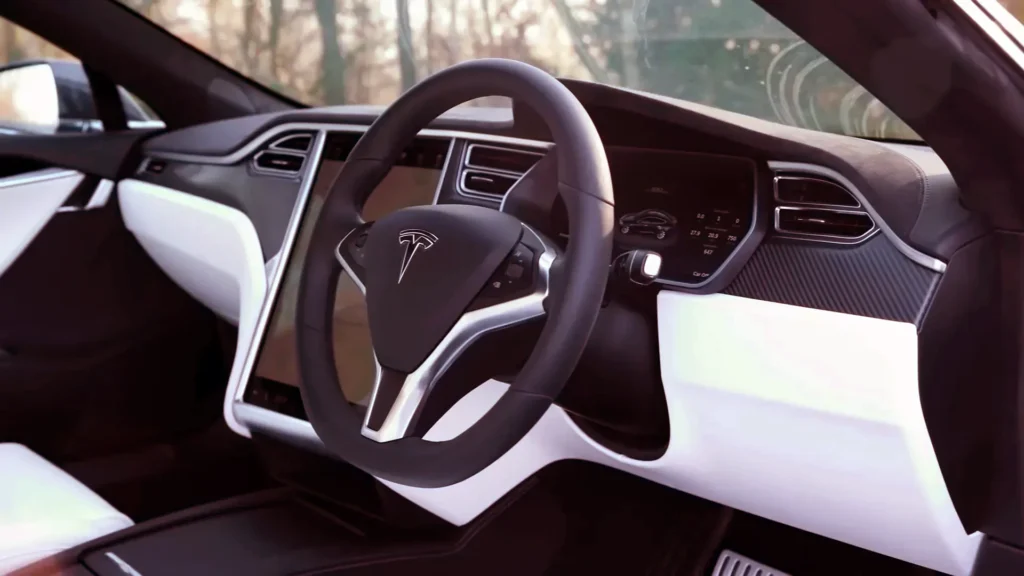
In this article, we will explore the compatibility of solar panels and electric cars. We will discuss the basics of solar panel technology and how it works. We will also cover the fundamentals of electric vehicles, their power sources, and charging methods. Furthermore, we will delve into the benefits and challenges of using solar power to charge electric cars.
Key Takeaways:
- The integration of solar power with EV technology has the potential to create a greener future.
- Solar panels work by converting sunlight into electricity through a process that involves multiple components.
- Electric vehicles operate on rechargeable batteries and can be charged using various methods, including dedicated charging stations and residential installations.
- Solar-powered electric vehicles offer benefits such as cost savings and reduced carbon emissions.
- There are limitations and challenges to consider when using solar power to charge electric vehicles, such as weather conditions and charging infrastructure.
How Solar Panels Work
Solar panels are devices designed to convert sunlight into electricity. This process occurs in a series of steps that involve several components.
The Components of a Solar Panel
A typical solar panel consists of several components, including:
- Photovoltaic cells: These cells, usually made of silicon, convert sunlight into electricity.
- Charge controller: This device regulates the flow of electricity from the solar panel to the battery, preventing overcharging or damage to the battery.
- Battery: The battery stores the electricity generated by the solar panel.
- Inverter: The inverter converts the DC (direct current) electricity produced by the solar panel into AC (alternating current) electricity that can be used to power appliances.

The Process of Converting Sunlight into Electricity
The conversion of sunlight into electricity occurs due to the properties of the photovoltaic cells. When sunlight strikes the cells, it excites the electrons within them, causing them to flow in a specific direction. This flow of electrons creates a current, producing a small amount of electricity.
The photovoltaic cells are connected in a series to form a solar panel. When sunlight hits the solar panel, the collective current generated by the photovoltaic cells is increased, producing a larger amount of electricity.
The electricity produced by the solar panel is then stored in a battery. The charge controller prevents damage to the battery by regulating the flow of electricity from the solar panel. The inverter then converts the DC electricity stored in the battery into AC electricity that can be used to power household appliances.
The Efficiency of Solar Panels
The efficiency of a solar panel refers to how much of the sunlight that hits it is converted into electricity. The average efficiency of commercially available solar panels is between 15% to 20%. However, research is currently being conducted to improve the efficiency of solar panels by using alternative materials and new designs.
The Lifespan of Solar Panels
The lifespan of a solar panel depends on various factors, including the quality of the components used, the installation process, and maintenance. On average, solar panels have a lifespan of 25 to 30 years, meaning they can continue to generate electricity for several decades.
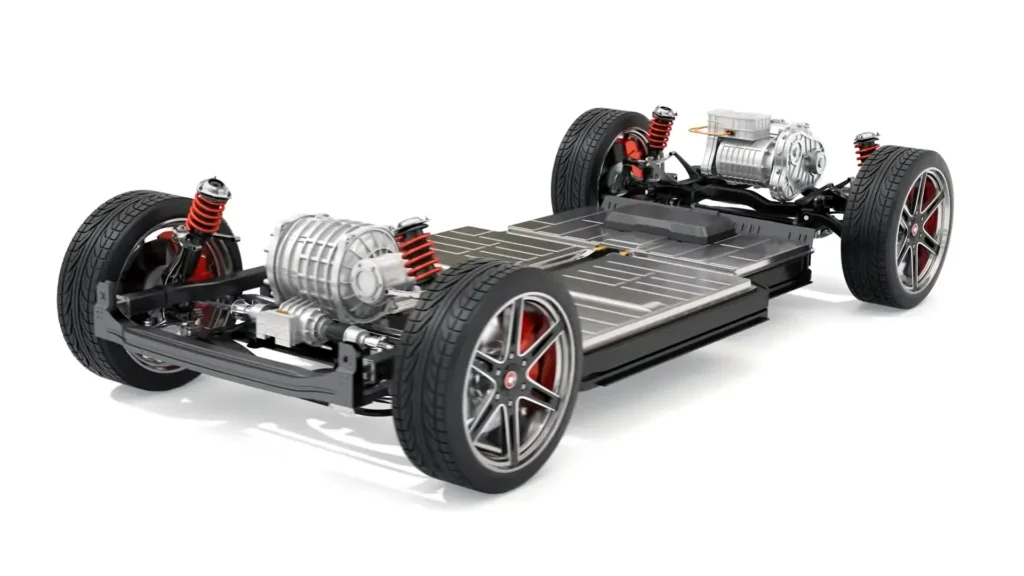
The Basics of Electric Vehicles
If you’re new to the world of electric vehicles, here’s a quick overview of the basics. Electric vehicles, or EVs, use electric motors powered by rechargeable batteries instead of internal combustion engines fueled by gasoline or diesel. This means that EVs produce zero direct emissions, making them a more sustainable transportation option compared to traditional vehicles.
There are two main types of EVs: battery electric vehicles (BEVs) and plug-in hybrid electric vehicles (PHEVs). BEVs run solely on electric power, while PHEVs have both an electric motor and a combustion engine and can switch between the two power sources.
EVs can be charged using a variety of methods, including at-home charging stations, public charging stations, and fast-charging stations, depending on the make and model of the vehicle. The time needed to charge an EV depends on the charging method and the battery’s capacity, but most EVs can be fully charged overnight using a Level 2 charging station.
| Type of EV | Main Power Source | Charging Time | Range Per Charge |
|---|---|---|---|
| Battery Electric Vehicle (BEV) | Electricity from rechargeable battery | 6-12 hours using Level 2 charging station | 80-300+ miles, depending on make and model |
| Plug-In Hybrid Electric Vehicle (PHEV) | Electricity from rechargeable battery and gasoline or diesel | 2-6 hours using Level 2 charging station, or refuel like traditional vehicle | 15-50 miles on electric power, plus additional range with combustion engine |
Understanding the basics of electric vehicles is essential to appreciate the potential for solar-powered electric cars. In the next section, we’ll explore the different options available for charging EVs using solar energy.
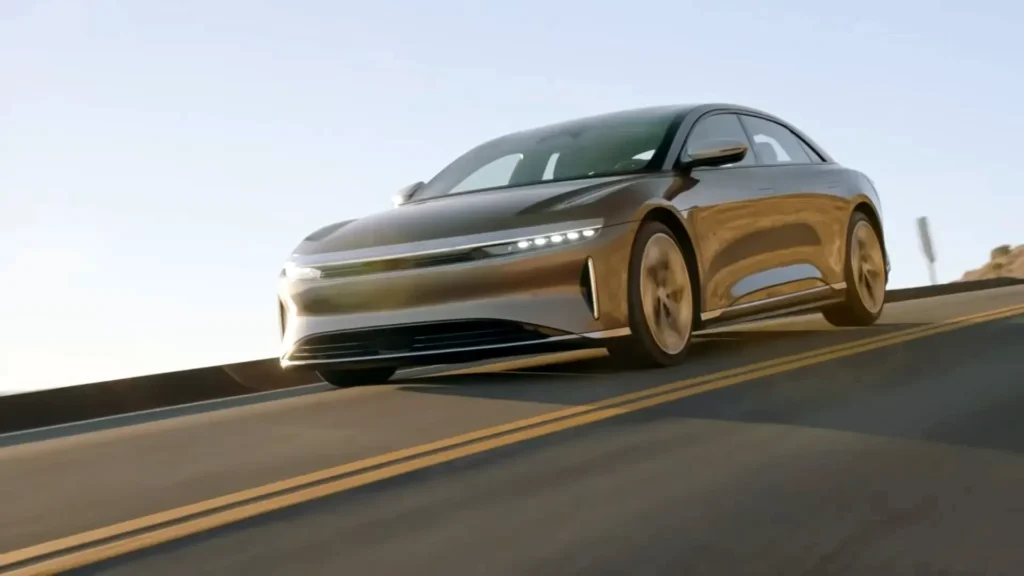
Solar Charging Options for Electric Cars
Solar charging is one of the most eco-friendly methods of charging electric vehicles. Let us explore the various solar charging options available to EV owners:
Dedicated Solar Charging Stations
Dedicated solar charging stations are designed to charge electric cars using solar power. These stations are typically located in public places like parking lots, shopping malls, and rest areas. They utilize photovoltaic cells to harvest sunlight and convert it into electricity, which is then used to charge EVs.
Residential Solar Panels
Residential solar panel installations can also be used to charge electric cars. EV owners can install solar panels on their rooftops and use the harvested solar energy to charge their vehicles. This option offers the convenience of charging at home and eliminates the need for public charging stations.
Portable Solar Charging Solutions
Portable solar charging solutions are ideal for people on the go who need to charge their electric cars outdoors. These solutions are compact and lightweight, making them easy to transport. They can be used to charge EVs directly or charge portable battery packs which can be used to charge the vehicle later.
Solar Canopies
Solar canopies are an innovative solution for EV charging. They consist of a structure with solar panels built into the canopy roof, providing shade for parked cars, while generating solar power to charge electric cars. Solar canopies are typically installed in public parking lots and provide an aesthetically pleasing shade solution while being environmentally friendly.
Solar Chargers with Battery Storage
Solar chargers with battery storage offer a convenient way to store energy harvested from the sun for later use. This solution provides the flexibility of charging electric cars even when the sun is not shining. The energy stored in the batteries can be used to charge electric cars or to power homes during power outages.
These are just some of the solar charging options available for electric cars. With the continued advancements in technology, we can expect to see more innovative solutions for eco-friendly EV charging in the future.
Benefits of Solar-Powered Electric Vehicles
Switching to solar-powered electric vehicles brings a multitude of benefits, both for the environment and for those behind the wheel. Let’s take a closer look at the advantages:
| Benefit | Description |
|---|---|
| Cost Savings | Electricity generated from the sun is free, making it significantly cheaper to charge solar-powered EVs compared to traditional gasoline-powered cars. |
| Reduced Carbon Emissions | Solar power is a clean, renewable energy source that produces zero emissions. By charging EVs with solar energy, drivers can help reduce their carbon footprint and promote a healthier planet. |
| Greater Energy Independence | By relying on solar energy to charge their vehicles, drivers become less dependent on traditional sources of energy and can enjoy greater energy independence. |
| Increased Driving Range | Solar panels can be used to extend the range of EVs, allowing drivers to travel further while reducing their reliance on traditional charging methods. |
| Improved Resale Value | Solar-powered EVs are in high demand, and their resale value is often higher than that of traditional gasoline-powered cars. |
In summary, solar-powered electric vehicles provide a range of benefits, including cost savings, reduced carbon emissions, and increased energy independence. As the world shifts towards more sustainable transportation options, solar-powered EVs are becoming an increasingly attractive choice for eco-conscious drivers.
Challenges and Considerations for Solar-Powered EVs
While solar-powered electric vehicles offer numerous benefits, there are several challenges and considerations that must be taken into account before making the switch. Some of the challenges include:
| Challenge | Considerations |
|---|---|
| 1. Limited Range | Most solar-powered EVs have a shorter range compared to traditional gasoline-powered vehicles, which may not be suitable for long-distance travel. However, advancements in technology may improve the range of solar-powered EVs in the future. |
| 2. Availability of Charging Infrastructure | The availability of charging infrastructure for solar-powered EVs is a significant challenge, particularly in remote or underdeveloped areas. The lack of charging stations may limit the range of these vehicles, making them impractical for some drivers. |
| 3. Impact of Weather Conditions on Solar Charging | Solar panels perform optimally in areas with abundant sunlight. Cloudy or rainy weather can impact the efficiency of solar panels, reducing the charging capacity of solar-powered EVs. This may affect the range and performance of the vehicle. |
When considering the switch to a solar-powered EV, it is essential to take into account these challenges and considerations to make an informed decision. While solar-powered EVs have a positive impact on the environment and offer cost savings in the long run, there may be some practical limitations that need to be taken into account.
Solar Panels and EV Battery Capacity
As more people opt for eco-friendly modes of transportation, the demand for electric cars has continued to surge. While using solar panels to charge electric cars is an excellent way to reduce carbon footprints, the impact on EV battery capacity is a crucial consideration to make.
The battery capacity of an electric car determines the vehicle’s range and performance. Solar charging can supplement the car battery’s power, allowing drivers to travel further without depleting the battery charge. However, it’s important to note that the degree of charging impact depends on several factors, including:
| Factors | Description |
|---|---|
| Solar Panel Efficiency | The efficiency of the solar panel is integral to charging an electric car. Higher efficiency solar panels can generate more power per square foot, meaning they can charge car batteries faster. |
| Time of Day | The time of day that the car is charged will also affect its range. The amount of sunlight available to the solar panels will determine the rate of charging. |
| Weather Conditions | Cloudy weather, storms, and other weather conditions can impact the amount of sunlight received by the solar panels. As a result, solar charging may not be an effective solution during prolonged cloudy or rainy conditions. |
While solar panels have the potential to increase an EV’s range, it’s essential to understand that this charging source should not be relied on entirely. The charging speed of solar panels can also vary depending on the type of EV battery technology used. For instance, while nickel-cadmium batteries may charge more efficiently, lithium-ion batteries could require additional time to fully charge via solar panels.
In conclusion, solar panels can impact an electric car’s battery capacity, and it’s crucial to consider various factors when considering this charging option. Nevertheless, supplementing standard charging with solar charging can help EV owners reduce their environmental impact while still enjoying the benefits of electric driving.
Future Trends in Solar-Powered Electric Vehicles
As technology continues to advance, solar-powered electric vehicles are poised to become more efficient, advanced, and accessible. Here are some of the exciting future trends to keep an eye on:
Improved Solar Panel Efficiency
Advancements in solar panel technology are expected to increase the energy efficiency of solar-powered electric vehicles. New materials and designs are being developed to improve the absorption and conversion of sunlight into energy.
| Current | Future |
|---|---|
| Solar panels convert 15-20% of sunlight into energy. | New technologies aim to increase efficiency to 30-40%. |
| Solar-powered EVs have limited range and performance capabilities. | Improved energy conversion will boost range and performance. |
Integration with Smart Grid Systems
Solar-powered EVs have the potential to revolutionize the way we think about energy consumption and distribution. In the future, solar-powered EVs may be integrated with smart grid systems to optimize energy usage and reduce waste.
“By allowing solar-powered EVs to interact with the electric grid, we can better manage renewable energy resources and create a sustainable transportation system.”
Expanded Charging Infrastructure
As more consumers adopt EVs, there will be a growing need for a robust and reliable charging infrastructure. The future of solar-powered electric vehicles depends on the availability of efficient and accessible charging options.
- Innovative solar-powered charging stations will become commonplace.
- Residential solar installations will provide a convenient and cost-effective way to charge EVs.
The future is bright for solar-powered electric vehicles. With continued investment in research and development, we can expect to see significant advancements in technology and infrastructure in the coming years.
Environmental Impact of Solar-Powered EVs
Solar-powered electric vehicles (EVs) are considered a sustainable solution for transportation as they rely on renewable energy sources. One of the significant benefits of solar-powered EVs is their positive impact on the environment. Unlike traditional gas-powered cars, solar-powered EVs produce zero emissions while driving, significantly reducing greenhouse gas emissions that contribute to climate change.
Reduced Carbon Footprint
The primary environmental benefit of solar-powered EVs is their reduced carbon footprint. As mentioned, solar-powered EVs produce zero emissions while being driven. Furthermore, using solar energy to charge EVs instead of electricity derived from fossil fuels can significantly reduce greenhouse gas emissions that result from the production of electricity.
Energy Efficiency
Solar-powered EVs are also more energy-efficient than traditional gas-powered cars. EVs convert approximately 60% of the energy produced from the battery to power the car, whereas combustion engines only convert 20% of the energy produced by burning fuel. Solar-powered EVs use energy from the sun, which is unlimited, abundant, and renewable, further reducing energy consumption and decreasing greenhouse gas emissions.
Promoting Sustainable Transport
Using solar energy to charge EVs promotes sustainable transport, reducing our dependence on fossil fuels and decreasing air pollution in urban areas. Lowering air pollution can improve public health and decrease the negative effects of climate change. Solar-powered EVs also decrease noise pollution, contributing to a more peaceful urban environment.
| Emissions | Gas-Powered Cars | Solar-Powered EVs |
|---|---|---|
| Carbon Footprint | High | Low |
| Efficiency | Low | High |
| Pollution | High | Low |
Conclusion
In conclusion, it is clear that solar panels have the potential to charge electric cars and contribute to a greener future. By harnessing the power of the sun, we can reduce our dependence on fossil fuels and decrease our carbon footprint.
Although there are challenges and considerations to be aware of, such as limited range and availability of charging infrastructure, the integration of solar power with EV technology offers numerous benefits. By using renewable energy sources to power our vehicles, we can save money on fuel costs and reduce our impact on the environment.
As technology and infrastructure continue to advance, solar-powered electric vehicles may become more widespread in the coming years. It is an exciting time for the future of sustainable transportation, and solar-powered EVs are at the forefront of this movement.
Overall, the answer is yes, a solar panel can charge an electric car, and we should continue to explore and invest in this promising technology.
FAQ
Can a solar panel charge an electric car?
Yes, a solar panel can charge an electric car. Solar panels generate electricity from sunlight, which can be used to charge the battery of an electric car. Solar-powered electric vehicle charging stations and residential solar installations are some of the options available for eco-friendly charging.
How do solar panels work?
Solar panels work by converting sunlight into electricity through a process called the photovoltaic effect. The panels are made up of solar cells that contain semiconductor materials, typically silicon. When sunlight hits the solar cells, it creates an electric current, which can be harnessed to power various devices, including electric cars.
What are the basics of electric vehicles?
Electric vehicles, or EVs, are cars that are powered by electric motors instead of internal combustion engines. They use rechargeable battery packs to store energy and provide power to the motor. EVs can be charged from external power sources, such as a wall outlet or a dedicated charging station, and offer a cleaner and more sustainable transportation option.
What are the solar charging options for electric cars?
There are several solar charging options available for electric cars. One option is to use dedicated solar charging stations, which are equipped with solar panels specifically designed for charging EVs. Another option is to install solar panels on residential properties, allowing EV owners to charge their cars directly from their home solar system.
What are the benefits of solar-powered electric vehicles?
Solar-powered electric vehicles offer several benefits. Firstly, they utilize renewable energy, reducing dependency on fossil fuels and decreasing carbon emissions. Secondly, solar charging can lead to cost savings, as the electricity generated from solar panels is free. Additionally, solar-powered EVs can help stabilize the electricity grid and increase energy independence.
What are the challenges and considerations for solar-powered EVs?
While solar-powered EVs have numerous advantages, there are also challenges and considerations to be aware of. Factors such as limited range due to the intermittent availability of sunlight, the need for suitable charging infrastructure, and the impact of weather conditions on solar charging must be taken into account. Additionally, the initial cost of installing solar panels can be a significant investment.
How do solar panels affect EV battery capacity?
Solar panels can affect the battery capacity of an electric car by providing additional charging capacity. When a solar panel supplies electricity to charge the car’s battery, it can extend the vehicle’s range. However, the actual impact on battery capacity depends on various factors, such as the size of the solar panel system, sunlight availability, and the efficiency of the charging process.
What are the future trends in solar-powered electric vehicles?
The future of solar-powered electric vehicles looks promising. Advancements in solar panel technology, such as increased efficiency and lightweight designs, are expected to enhance the integration of solar power with EVs. Furthermore, the development of smart grid systems and vehicle-to-grid technology may enable solar-powered EVs to contribute to the stability and optimization of the electricity grid.
What is the environmental impact of solar-powered EVs?
Solar-powered electric vehicles have a positive environmental impact. By utilizing renewable energy from the sun, they help reduce greenhouse gas emissions and dependence on fossil fuels. Solar-powered EVs contribute to sustainable transportation and play a significant role in combating climate change and improving air quality.

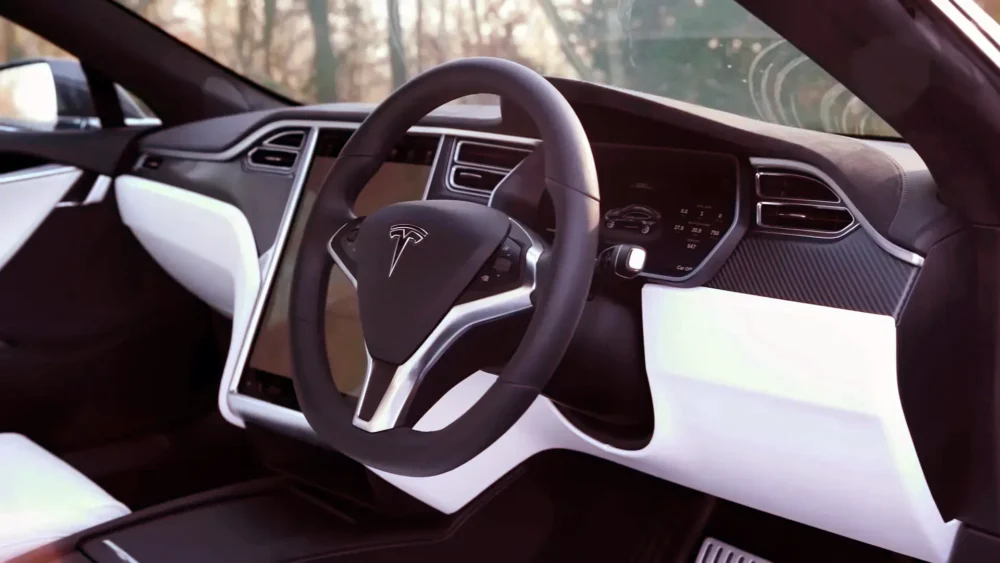



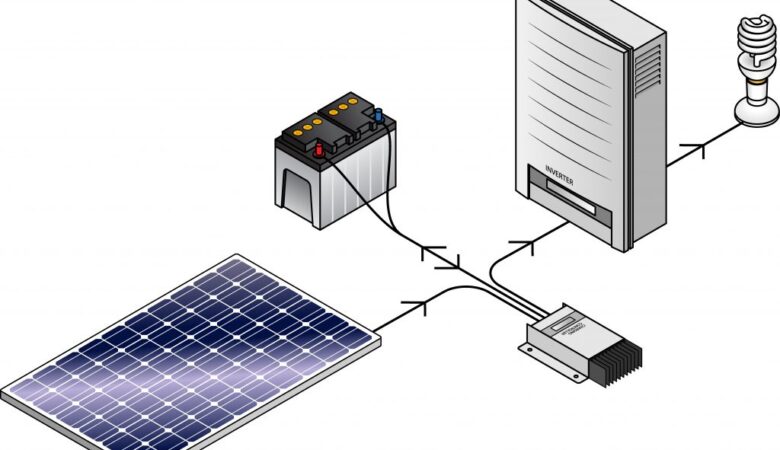



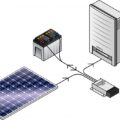


Leave a Reply